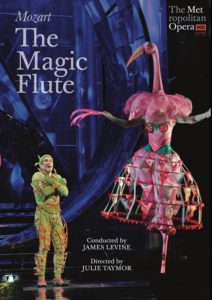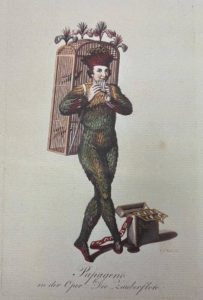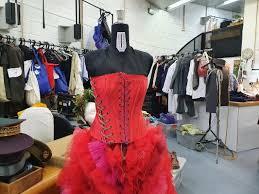
Art Therapy
“One of the basic rules of the universe is that nothing is perfect. Perfection simply doesn’t exist…..Without imperfection, neither you nor I would exist” ― Stephen Hawking



 Books and music are both my and my husband’s passions. Even when we were courting, the store fronts that attracted us were those of bookstores and record shops. Neither of us had much money to spend, but the temptation overtook us when a bookstore was open, and it was seldom that we walked out without purchasing at least one or two volumes. Our children, from a very early age, were exposed to books and music; we read to them and listened together to classical music or children’s songs. I guess they either were born with the gene or acquired the habit of book reading, collecting and cherishing. Even one of my granddaughters was reading at age 4 since her sister, who is 3 years older, got fed up reading to her. So, her sister taught her how to read. She then walked everywhere with a book, even on river banks.
Books and music are both my and my husband’s passions. Even when we were courting, the store fronts that attracted us were those of bookstores and record shops. Neither of us had much money to spend, but the temptation overtook us when a bookstore was open, and it was seldom that we walked out without purchasing at least one or two volumes. Our children, from a very early age, were exposed to books and music; we read to them and listened together to classical music or children’s songs. I guess they either were born with the gene or acquired the habit of book reading, collecting and cherishing. Even one of my granddaughters was reading at age 4 since her sister, who is 3 years older, got fed up reading to her. So, her sister taught her how to read. She then walked everywhere with a book, even on river banks.
 Another habit that some of the children “inherited,” mainly from my husband, is collecting discarded items that may one day be useful. It was not unusual to see my husband dive into a large dumpster at the industrial area behind an electronic or an electric-supply place and harvest a large quantity of wire, special boards, or even screws of special interest. I must admit that I too used some of the sites to collect materials for art projects, such as a variety of cloth materials, wood boards, string, and packing foam. However, books were always favorites. These days, some people build neat little “library” boxes
Another habit that some of the children “inherited,” mainly from my husband, is collecting discarded items that may one day be useful. It was not unusual to see my husband dive into a large dumpster at the industrial area behind an electronic or an electric-supply place and harvest a large quantity of wire, special boards, or even screws of special interest. I must admit that I too used some of the sites to collect materials for art projects, such as a variety of cloth materials, wood boards, string, and packing foam. However, books were always favorites. These days, some people build neat little “library” boxes  outside their yard, and people can just pick up or place books without payment. Others just place unwanted books on the fence by the street. Sadly, if no one picks them up, they go into the garbage.
outside their yard, and people can just pick up or place books without payment. Others just place unwanted books on the fence by the street. Sadly, if no one picks them up, they go into the garbage.
While all of our children indulge at least occasionally, our son in Jerusalem is an inveterate collector. One day when he browsed through some discarded books, he found a treasure that would someday make me happy. He presented me with a hard-cover large book titled “The Magic Flute.” It features a picture of the original Papageno character from the first production of Mozart’s opera and a facsimile of Mozart’s handwritten score of Papageno’s aria. I truly treasured the gift and placed it somewhere in one of our overstuffed dining-room bookcases. Many events came and went, and the book was forgotten.
and a facsimile of Mozart’s handwritten score of Papageno’s aria. I truly treasured the gift and placed it somewhere in one of our overstuffed dining-room bookcases. Many events came and went, and the book was forgotten.
 A month ago, the conservatory choir I participate in and the younger high-school choir were given a golden opportunity. The Israeli Opera has an ongoing project of producing yearly an opera in a community, using amateur singers to perform with opera singers. To my delight, my city of Karmiel was chosen for this year’s event, and the opera we will produce is Mozart’s Magic Flute – my favorite opera by far. When we started rehearsing, I remembered the book and brought it for people to see. Our conductor was so excited that I decided to donate it to the conservatory.
A month ago, the conservatory choir I participate in and the younger high-school choir were given a golden opportunity. The Israeli Opera has an ongoing project of producing yearly an opera in a community, using amateur singers to perform with opera singers. To my delight, my city of Karmiel was chosen for this year’s event, and the opera we will produce is Mozart’s Magic Flute – my favorite opera by far. When we started rehearsing, I remembered the book and brought it for people to see. Our conductor was so excited that I decided to donate it to the conservatory.
The story is magical, the libretto somewhat simple but deep. It reflects the eternal conflict between light and darkness, good and evil. It is influenced by Mozart’s involvement in the Freemason society. In The San Francisco Opera Education, I found an essay discussing major themes in The Magic Flute. I found this excerpt interesting:
“That The Magic Flute is a barely veiled Masonic allegory cannot be doubted. It acts, in fact, as a kind of introduction to the secret society. Its story celebrates the main themes of masonry: good vs. evil, enlightenment vs. ignorance, and the virtues of knowledge, justice, wisdom and truth. The evocation of the four elements (earth, air, water and fire), the injunction of silence in the Masonic ritual, the figures of the bird, the serpent and the padlock as well as the ‘rule of three’ all play important roles in the plot or in the musical fabric of the opera.”
The Magic Flute was not the first opera I saw in my life. In spite of the fact that my parents were not well-to-do and times were hard, my parents craved some of the culture and music they missed from their previous life in Europe. There was a very excited buzz when an Italian company in conjunction with the Israeli Opera Company was producing The Barber of Seville by Gioachino Rossini (libretto in Italian by Cesare Sterbini) in Tel Aviv. I found an article in the paper Hamashkif from September 1, 1948. Ms. Edis De Philippe told the press that in spite of the hard conditions, and the fact that many pf the star performers and members of the choir were in the army, the show would go on. It was reported that in spite of the fighting and the necessity to perform in different locations, 1500 people attended the first opera performance during 1947. It was also reported that Ms. Ela Belkin, who studied singing for 7 years abroad, would perform for the first time in an opera in her native city of Tel Aviv. It also urged that from now on the opera should have the status of a national enterprise.
I found an article in the paper Hamashkif from September 1, 1948. Ms. Edis De Philippe told the press that in spite of the hard conditions, and the fact that many pf the star performers and members of the choir were in the army, the show would go on. It was reported that in spite of the fighting and the necessity to perform in different locations, 1500 people attended the first opera performance during 1947. It was also reported that Ms. Ela Belkin, who studied singing for 7 years abroad, would perform for the first time in an opera in her native city of Tel Aviv. It also urged that from now on the opera should have the status of a national enterprise.
My parents gave me a very special present for my 7th birthday. They took me to a performance of The Barber of Seville, and from that time I was hooked on Opera. There was no permanent opera house until 1958, so the performances happened in different halls, sometimes movie theaters. Since that time, I have gone to the opera as often as I could. I saw many performances both in Israel, Toronto, lately in Berlin as well, and was happy to be able to watch performances of the Metropolitan Opera on wide screen in theaters, and even on television broadcasted by PBS. During the first 2 years of the pandemic, when live opera performances were banned, free pre-recorded performances were made available to watch – and it was so uplifting in times of anxiety.
 My children were introduced to The Magic Flute when we were on sabbatical in Haifa in 1976. Ingmar Bergman’s directed the 1975 film version of Mozart’s opera Die Zauberflöte (Swedish: Trollflöjten). Despite the length of the film we all sat spellbound.
My children were introduced to The Magic Flute when we were on sabbatical in Haifa in 1976. Ingmar Bergman’s directed the 1975 film version of Mozart’s opera Die Zauberflöte (Swedish: Trollflöjten). Despite the length of the film we all sat spellbound.  Being able to create such elaborate scenes without the constraints of a stage allowed Bergman a lot of freedom to engage in filming extraordinarily complicated scenery. He even incorporated hot air balloons to carry 3 children singing into the sky. The famous song of the Queen of Darkness really looked like it came from the moon. And the scene at Zarathustra’s court was unforgettable in its richness and majesty. I found the film online, and am intending to watch it again.
Being able to create such elaborate scenes without the constraints of a stage allowed Bergman a lot of freedom to engage in filming extraordinarily complicated scenery. He even incorporated hot air balloons to carry 3 children singing into the sky. The famous song of the Queen of Darkness really looked like it came from the moon. And the scene at Zarathustra’s court was unforgettable in its richness and majesty. I found the film online, and am intending to watch it again.
 Last week 2 buses full of the 2 choirs and the group of dancers left Karmiel for Tel Aviv to tour the beautiful opera house and rehearse with the conductor. The biggest excitement was being fitted with our costumes. Before the rehearsal we were taken on a tour backstage. The stage is enormous, and has great and elaborate mechanical and electronically-controlled devices for dealing with anything the staging requires. This building was designed to be acoustically superb, so that there is no necessity for microphones, and the sound carries to the last row of seats. Similarly, every seat in the house is situated so that every audience member can see well everywhere.
Last week 2 buses full of the 2 choirs and the group of dancers left Karmiel for Tel Aviv to tour the beautiful opera house and rehearse with the conductor. The biggest excitement was being fitted with our costumes. Before the rehearsal we were taken on a tour backstage. The stage is enormous, and has great and elaborate mechanical and electronically-controlled devices for dealing with anything the staging requires. This building was designed to be acoustically superb, so that there is no necessity for microphones, and the sound carries to the last row of seats. Similarly, every seat in the house is situated so that every audience member can see well everywhere.
 We were told about the history of the Israeli Opera, which was started by Mordechai Golinkin who came from Moscow to Palestine and opened the first performance in July 28, 1923 with Verdi’s La Traviata. Golinkin directed the Palestine Opera for four years, and in 1940, the composer Marc Lavry and the conductor George Singer established the Palestine Folk Opera.
We were told about the history of the Israeli Opera, which was started by Mordechai Golinkin who came from Moscow to Palestine and opened the first performance in July 28, 1923 with Verdi’s La Traviata. Golinkin directed the Palestine Opera for four years, and in 1940, the composer Marc Lavry and the conductor George Singer established the Palestine Folk Opera.  By 1945 sixteen productions had been staged, among them the first opera in Hebrew, Dan the Guard by Lavry, the poet Shin Shalom, and writer Max Brod. A major change came on November 13, 1945 when American soprano Edis De Philippe landed in Israel and within a short time created the Israel National Opera. De Philippe’s company performed night after night all over the country. The company was so successful that it attracted young and rising international opera stars to spend some time in Israel. One Spanish tenor spent three years here in the early 1960s. It was in Tel Aviv that he learned the basic tenor repertoire before embarking on an international career – none other than Plácido Domingo.
By 1945 sixteen productions had been staged, among them the first opera in Hebrew, Dan the Guard by Lavry, the poet Shin Shalom, and writer Max Brod. A major change came on November 13, 1945 when American soprano Edis De Philippe landed in Israel and within a short time created the Israel National Opera. De Philippe’s company performed night after night all over the country. The company was so successful that it attracted young and rising international opera stars to spend some time in Israel. One Spanish tenor spent three years here in the early 1960s. It was in Tel Aviv that he learned the basic tenor repertoire before embarking on an international career – none other than Plácido Domingo.
 We proceeded to the rehearsal of our parts in the opera, and then looked in at the wig-production, makeup, and costume rooms. We understand now why opera is so costly to produce, and therefore there are many collaborations between different opera companies all over the world. There is an exchange of costumes, sets, and performers, and this enables a bigger variety of performances, which helps enrich the audience. When we went finally to try on our costumes, we realized how meticulous the fitting is. Every one of us had to be fitted with the right look, as dictated by the stage manager.
We proceeded to the rehearsal of our parts in the opera, and then looked in at the wig-production, makeup, and costume rooms. We understand now why opera is so costly to produce, and therefore there are many collaborations between different opera companies all over the world. There is an exchange of costumes, sets, and performers, and this enables a bigger variety of performances, which helps enrich the audience. When we went finally to try on our costumes, we realized how meticulous the fitting is. Every one of us had to be fitted with the right look, as dictated by the stage manager.
 The same outfit came in various colors and sizes. The dresser chose for each one of us the outfit she deemed appropriate, and then gave instructions for the alterations to be done. There were 5 people working with each of us, and each member of our choir got 2 different outfits. We also got special head gear and one of us had a rather large head – none of the existing ones fit her! They measured her head and a special one will be made for her. We were even told what color and type of undergarment to wear under the costume. Since the lights are hot and the material sometimes heavy it may affect our ability to sing and to be lively on stage.
The same outfit came in various colors and sizes. The dresser chose for each one of us the outfit she deemed appropriate, and then gave instructions for the alterations to be done. There were 5 people working with each of us, and each member of our choir got 2 different outfits. We also got special head gear and one of us had a rather large head – none of the existing ones fit her! They measured her head and a special one will be made for her. We were even told what color and type of undergarment to wear under the costume. Since the lights are hot and the material sometimes heavy it may affect our ability to sing and to be lively on stage.
We arrived home after 11 PM – a bit tired, but enthusiastic to practice hard. We have since had 2 more rehearsals with the changes the opera conductor made for each part. Luckily for me most of the changes are for the sopranos. I am an alto, and so did not have to learn too many changes. The challenge is to learn the text by heart, and not to get mixed up. Next month we will start rehearsing on the stage here in Karmiel where we will perform the opera. This is an adaptation and it will run roughly half the time of the original. It will also be performed in Hebrew. The 3 or 4 performances will happen sometime toward the end of February 2022. Wish us luck!
